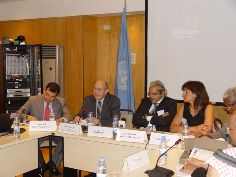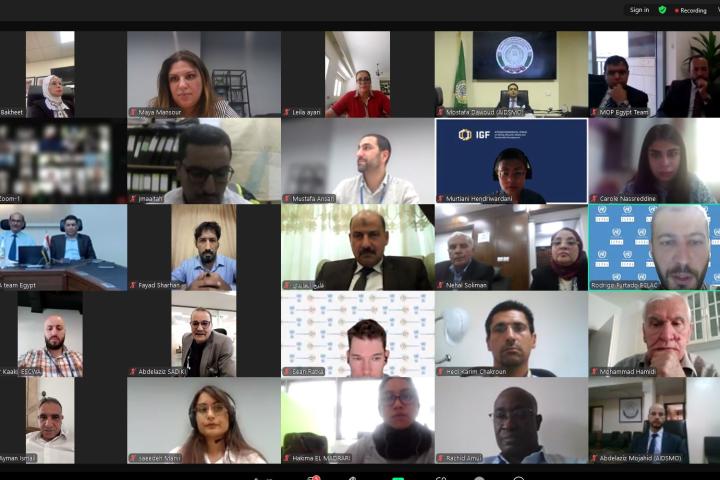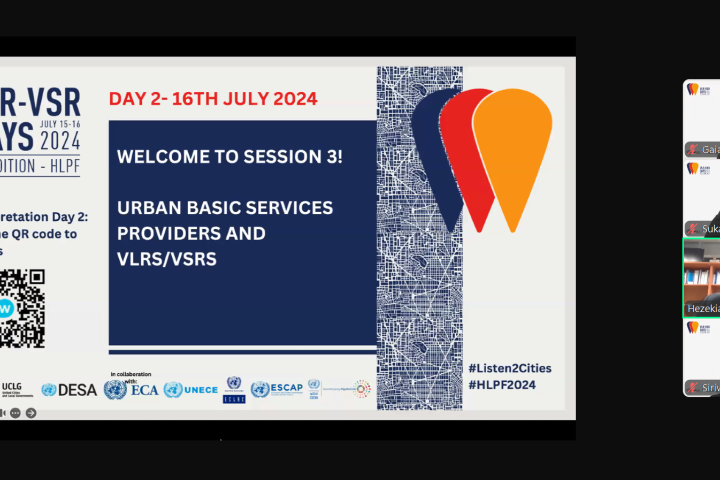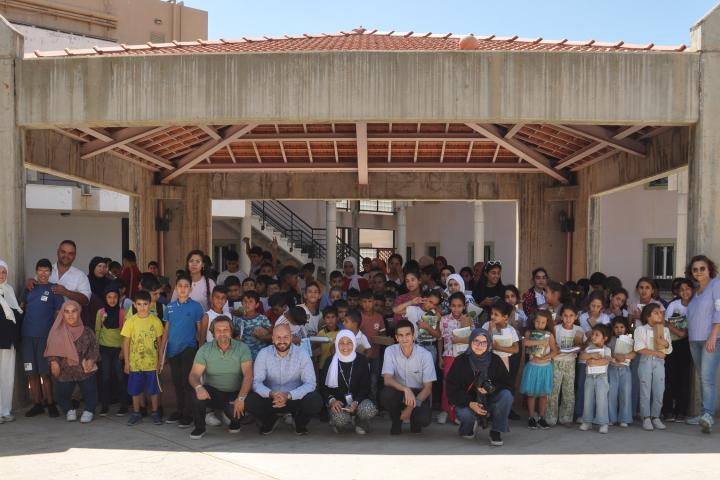The Executive Secretary of ESCWA, Bader AlDafa, called for strengthening inter-Arab trade and investments, the advancement of trade, and promotion of the private sector and investment to ward off repercussions of the global financial crisis and achieve the Millennium Development Goals (MDGs). This call was made in the opening of the 6th Session of the Technical Committee on the Liberalization of Foreign Trade, Economic Globalization and Financing for Development, held under the auspices of Lebanese Economy and Trade Minister Muhammad Safadi,.
The Committee will discuss the Damascus Declaration on the repercussions of the global financial crisis in the ESCWA region. It will focus on the progress of member countries in this area and in the trade processes, as well as their repercussions over trade and economic performance in member countries. The Committee will also discuss member countries’ progress in financing for development, namely the part concerning the Monterrey Consensus adopted by the UN Conference on Financing for Development in Mexico (March, 2001). ESCWA holds its meeting July 6-7 at the UN House, Beirut.
Delivering the speech of AlDafa, Chief of the ESCWA Economic Development and Globalization Division Nabil Safwat said the financial crisis may negatively affect developing countries’ ability to achieve the MDGs. It is also "feared that the crisis could result in a relapse to protectionism, especially in developed countries". It was therefore urgent to review and re-evaluate current trade policies as well as alternatives to them in ESCWA member countries.
Despite positive steps taken in the region to diversify production and promote external trade, the region’s foreign trade represented only 3.6 per cent of the global volume in 2007. Also, the percentage of inter-Arab trade to gross external trade in the region only rose from 9.3 per cent in 2001 to 11.3 per cent in 2007. As for Foreign Direct Investments (FDI), the primary external source for financing development in developing countries, it shrank by 45 per cent in the first quarter of 2009, which could result in increased poverty and unemployment.
ESCWA gives prominence to the issue of the financial crisis and its repercussions on member countries. It took several steps to alleviate these effects, and together with the International Labour Organization, it is currently conducting a study on the ways to face this crisis in the region.
A Strategy for Lebanon
Also in the opening, representing Lebanese Trade Minister Safadi, Chief of the Information Centre at the Ministry of Economy and Trade Rafif Berro said the Lebanese government put together a draft plan detailing the possible risks of the financial crisis repercussions, and the steps to take on all levels to protect the national economy and push it forth towards growth and diversification. The paper concludes with the adoption of an expansionary financial policy that provides extra liquidity to increase internal demand and individual spending, encourages the private sector to move the economy and pushes on with the Paris III reforms.
Berro stressed that Lebanon was not shielded from the repercussions of the financial crisis, since the World Bank report on financing for development for this year concluded that the growth of the Lebanese economy was directly related to that of the Arab and regional economies. Lebanon should therefore deal with its public budget deficit and high public debt through coordinated and well-targeted policies.
The election of officers for the sixth session yielded the following results: Saudi Arabia's Muhammad bin Ibrahim Al Hayzan, chairman of the Session; Egypt's Walid Nabil Al Nazhi, and Yemen's Fadel Moqbel Mansour, vice-chairmen. Jordan's Muhammad Orsan Al Zohbi, rapporteur.




